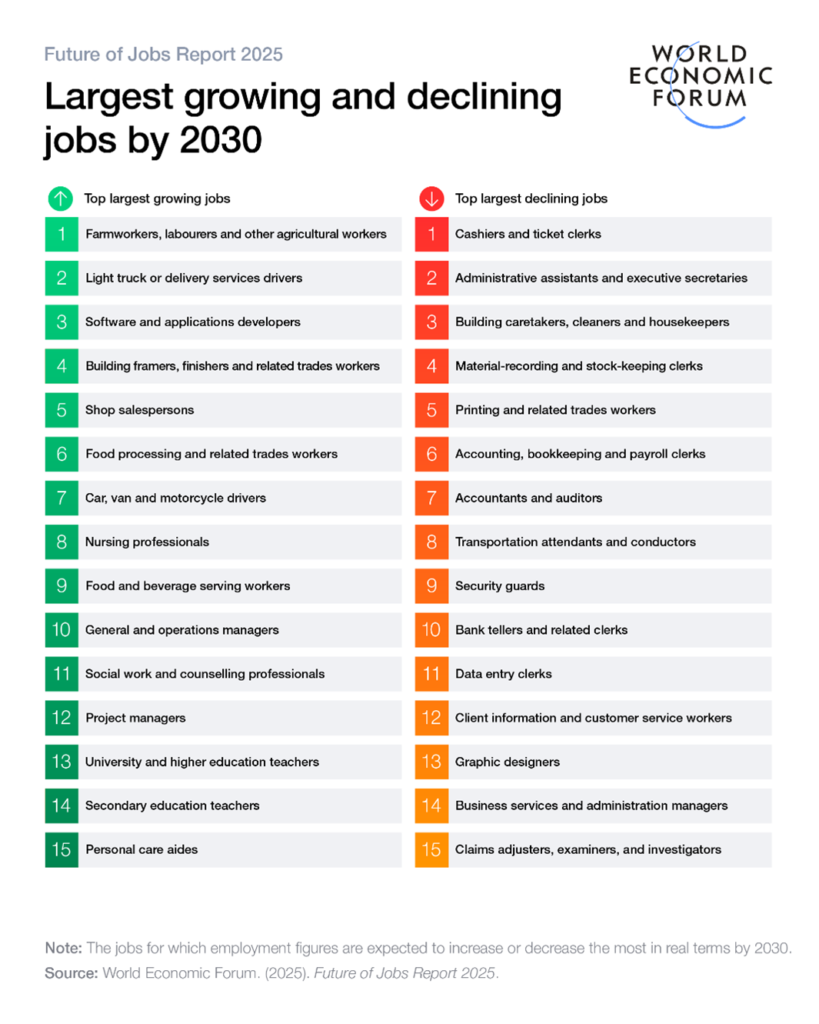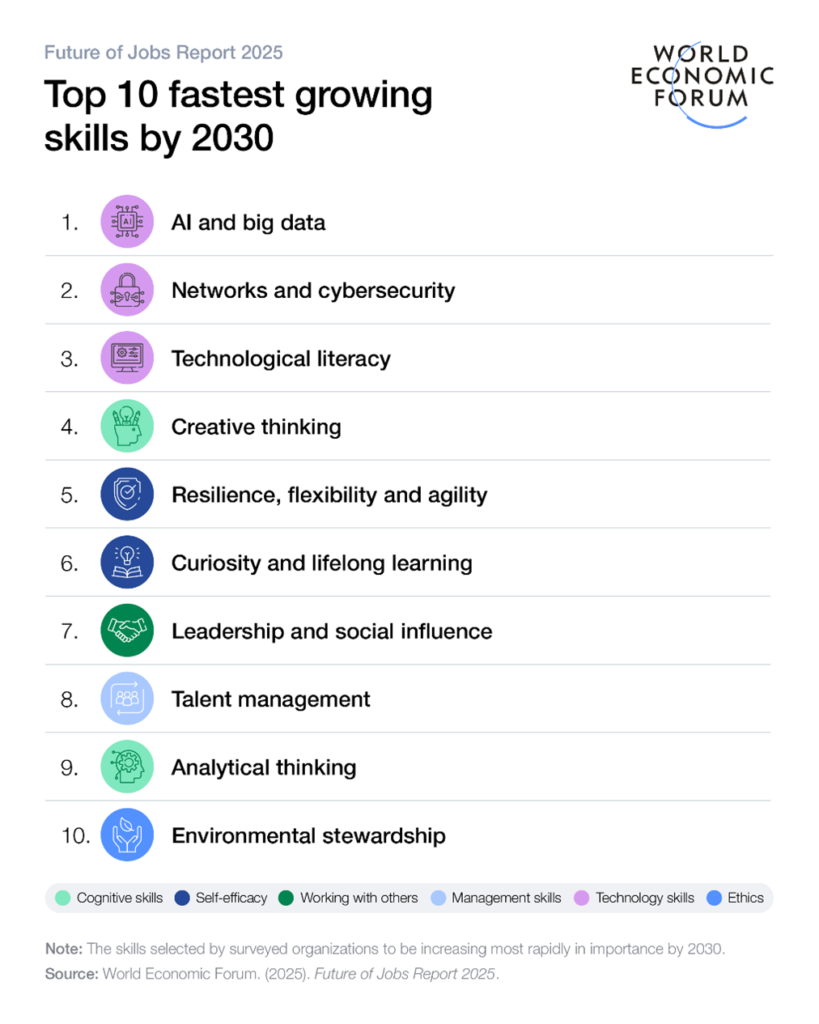WEF: Global labour market is poised for a significant change

Mainly driven by tech advancements
The latest edition of the Future of Jobs Report, released by the World Economic Forum (WEF), shows that the global labour market is poised for significant change.
By 2030, 22% of jobs are expected to undergo disruption, with a net gain of 78 million roles set to emerge from the simultaneous creation of 170 million new jobs and the displacement of 92 million existing ones. This shift will be driven mainly by technological advancements, demographic trends, economic pressures, and geopolitical tensions, rapidly reshaping industries and professions.
According to the report, data from over 1,000 companies indicates that the most pressing challenge to business transformation is the ongoing skills gap. Nearly 40% of the skills required in today’s job market will evolve over the next few years, and 63% of employers already identify this as a significant barrier to their operations.
While technology skills in areas such as artificial intelligence (AI), big data, and cybersecurity are expected to experience rapid demand growth, human skills like creative thinking, resilience, and agility will continue to be essential. As the job market grows more dynamic, success will require a balance between technical and human abilities.
Frontline roles
The report highlights that frontline roles in essential sectors, such as care and education, will experience the highest job growth by 2030. At the same time, emerging technologies like AI and renewable energy are reshaping the market.
This transformation will surge demand for specialist energy systems and environmental engineering roles. However, the rise of generative AI may also decline certain professions, such as graphic design.

Till Leopold, the World Economic Forum’s Head of Work, Wages, and Job Creation, stressed that technological disruptions bring unprecedented opportunities and substantial risks. Leopold said that trends such as generative AI and rapid technological shifts are upending industries and labour markets. “The time is now for businesses and governments to collaborate, invest in skills, and build an equitable and resilient global workforce.”
Looking ahead to 2030, it is clear that frontline positions, including farmworkers, delivery drivers, and construction workers, will see substantial job growth. Healthcare roles, such as nursing professionals, and education positions, such as secondary school teachers, will also expand as demographic trends drive demand for services in these essential sectors.
Declining roles
On the other hand, roles like cashiers and administrative assistants are predicted to decline rapidly, with graphic designers now joining the ranks of disappearing professions as AI increasingly takes over tasks traditionally handled by humans.
One of the report’s key findings is that the skills gap remains the most significant obstacle to businesses adapting to future challenges. If 100 people represent the global workforce, the forecast suggests that 59 of them will need reskilling or upskilling by 2030.
Unfortunately, 11 of these workers are unlikely to receive the necessary training, meaning over 120 million are at medium-term risk of redundancy. Employers are already looking to address this challenge: 77% plan to upskill their existing workforce, while 41% prepare for workforce reductions as AI automates specific tasks.
The report also highlights the necessity of AI-driven upskilling, with businesses shifting their focus to embrace new opportunities from this technology. In response, many companies will be transitioning staff away from AI-exposed roles into other business areas, helping to alleviate skills shortages and mitigate the human cost of technological transformation.

Beyond technological innovation, economic, demographic, and geoeconomic changes also significantly shape the future job market. Despite the easing of global inflation, the rising cost of living continues to pressure business models, with half of employers expecting these challenges to drive transformation.
Jobs threatened
Slow economic growth and price pressures are expected to displace six million jobs globally by 2030, increasing the demand for workers with resilience, flexibility, and creative thinking skills.
Additionally, demographic shifts are reshaping labour markets worldwide. Ageing populations in wealthier nations drive demand for healthcare workers while growing working-age populations in lower-income countries increase the need for education professionals. To address these gaps, workforce strategies must focus on enhancing talent management and teaching skills to ensure the smooth transition of workers into new roles.
Geopolitical tensions are another factor businesses must contend with as trade restrictions and industrial policy shifts continue to impact industries. Around 34% of companies cite these tensions as a primary concern, and many are responding by exploring offshoring and reshoring strategies. These changes further drive the demand for specialised skills, such as cybersecurity.
Addressing the rapid transformations highlighted in the Future of Jobs Report requires urgent action. Governments, businesses, and educational institutions must work collaboratively to bridge the skills gap, invest in reskilling and upskilling programmes, and create accessible pathways for workers into the fast-growing jobs of tomorrow. By prioritising inclusive and equitable workforce transitions, stakeholders can build a resilient and adaptable global workforce ready to thrive in an ever-changing job market.
The report calls for collective action to build a future-proof workforce capable of navigating the challenges ahead. This will ensure that workers and businesses are well-equipped to meet future demands.
Image: Credit: According to the WEF report, nearly 40% of the skills required in today’s job market will evolve over the next few years. Credit: Chevanon Photography













